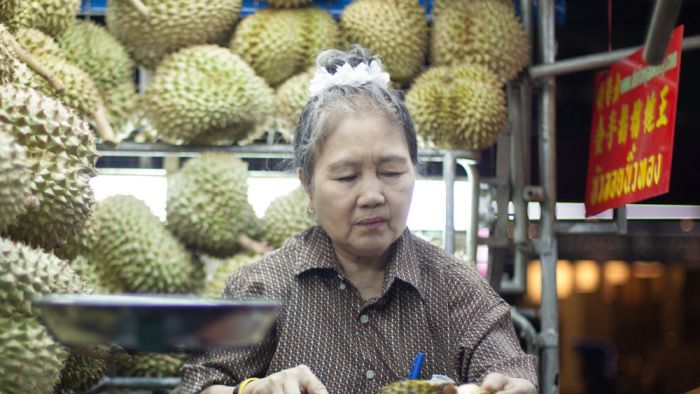In late June, New York Times’s South-East Asia bureau chief Hannah Beech wrote an article in which she described a pile of mangosteens as “an exercise in disappointment”, said durian stank of “death” and concluded many of the region’s native fruits hovered “between delectable and decayed”.
The article, titled Eating Thai Fruit Demands Serious Effort but Delivers Sublime Reward, elicited heated responses online.

Award-winning American food writer Osayi Endolyn, whose bylines include the Washington Post and the Los Angeles Times, did a “close reading” that systematically broke down Beech’s feature.
In her annotations for one section, she writes: “This is an extremely negative and opinionated view framed as reported fact. It emphasises the trouble and the problem. It is an outsider take. By that, I mean a COLONIAL take.”
Vietnamese American novelist and “avid eater” Monique Truong took to Twitter to express her dismay:
Loading
Like Truong, Sydney food writer and podcaster Lee Tran Lam (host of The Unbearable Lightness of Being Hungry) was aggrieved by Beech describing a rambutan as bearing “more than a passing resemblance to a coronavirus”.
“[This] flippant remark doesn’t really take in the context that it’s being published in,” says Lam, pointing to the connection between the spread of COVID-19 and a rise in anti-Asian racism.
“There’s obviously a certain level of cultural blindness that happened [with that article],” she says.

And Beech’s feature is the tip of the iceberg, alongside other recent developments in food media — including the events that led to the Times suspending their food critic Alison Roman, and revelations about how Bon Appetit remunerates and treats its staff of colour.
Below these high-profile controversies lie pervasive issues in the food industry and its media that Lam and other Australian journalists are hoping to address.
But first, on durians

Lam says she was “quite confused” when she read the New York Times article.
Lam compares the “trouble” of preparing some Asian fruit to the challenges of preparing an artichoke, which also requires quite a lot of work for a small amount of flesh.
Sh

